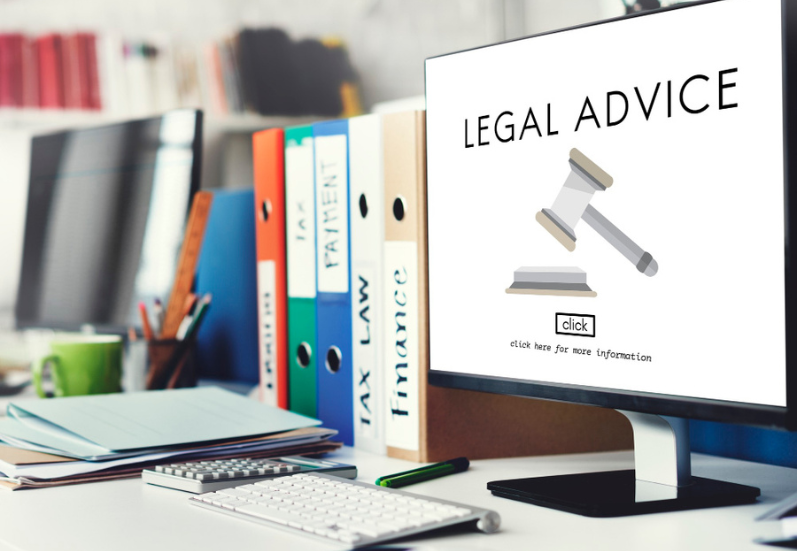
Law school isn’t cheap, and it’s not just the tuition. Buying textbooks, subscribing to databases, and buying legal reference materials can quickly add up. For many students, every dollar counts. That’s why free law study materials for students are so important.
It can fill in the gaps, reinforce what you’ve learned, and give you different points of view. Whether you’re studying for finals or writing your first case brief, having multiple sources to refer to gives you an academic edge without putting you in debt.
Where to Find Free Law Study Materials for Students?
Here are some of the places where you can find the best law study materials for students. Check these out:
Online Law Repositories and Document Libraries
In addition to flashcards and textbooks, comprehensive document libraries can provide examples of case briefs, contracts, and legal memos.
Students often turn to find study materials at EduBirdie, which offers various academic materials tailored for learners. These documents can help you understand how legal concepts are applied and formatted in real assignments.
Whether you’re writing a case analysis or looking for structure in a legal essay, using these examples can save time and make complex tasks more approachable.
Open Textbook Initiatives
Secondly, many groups support free and open-access educational materials, such as law books.
OpenStax, Saylor Academy, and MERLOT all offer digital law books on topics such as U.S. legal systems, constitutional law, and criminal justice.
These have been reviewed by peers and are meant to meet academic standards.
Library Access and Interlibrary Loans
Don’t overlook your campus library. Many universities allow you to borrow expensive law books for free.
Interlibrary loan programs also let you request texts from other institutions. All you need is a student ID and a little planning before due dates arrive.
Free Law Study Guides on Websites
There are a lot of online tools that can help you study, like flashcards, summaries, and practice tests.
Quizlet, Law Stack Exchange, and LegalCheek are all good websites for going over definitions, legal procedures, and made-up questions.
Free Online Law Study Materials for Students to Supplement Your Law Education
Everything is online these days! Here are some of the places for online legal education that law students, even from the best law schools, can check out:
Coursera and edX Law Courses
University professors teach both basic and advanced legal courses on online learning platforms. You can learn about things like privacy law, corporate law, or legal writing on Coursera.
Harvard and the University of London are two of the schools that offer programs on edX. You can take many of these courses for free, without paying anything.
Harvard and Yale Open Courses
Harvard and Yale, two of the best law schools, put all of their course lectures, reading lists, and outlines online.
These resources let you see what it’s like to go to a top law school without having to pay a lot of money.
It’s a great way to learn more about complicated legal ideas or look into things you don’t know much about.
Law School Websites and Blogs
Many law faculties maintain blogs where professors and students publish short pieces about legal developments.
While these aren’t substitutes for textbooks, they offer real-world context, updates on current cases, and simplified explanations of tricky legal doctrines.
Best Free Law Databases and Repositories for Law Study Materials for Students
Here is a list of the legal databases that every law student must check out if you want to become one of the best lawyers in the world:
Legal Information Institutes (LIIs)
One of the best ways to find case law, statutes, and regulatory info is through Legal Information Institutes.
The Cornell LII, for example, covers U.S. federal law and some state-level material. International LIIs, like AustLII and CanLII, serve similar roles in other jurisdictions.
Government Websites
For primary sources like court rulings and legal codes, government sites are gold. Congress.gov, U.S. Supreme Court, and various state court websites offer full opinions, legislative histories, and statutes—all searchable and free to use.
Open Access Journals
Many law journals publish content without paywalls. Titles from Duke Law, Berkeley Law, and others can be accessed via their institutional repositories. These papers are useful for in-depth research and keeping up with emerging legal scholarship.
Best Free Tools for Legal Research
If you are not satisfied with the knowledge you are getting from these courses, here’s what you can do:
Google Scholar
People can use Google Scholar to look up case law and academic papers. It’s very useful when you need to find a precedent quickly or when you’re making a bibliography. You can also narrow down your results by time or place.
Case Law Search Engines
Websites like Justia, Casetext, and CourtListener have easy-to-use search tools that help you find relevant rulings. Most of them don’t need you to sign up for an account or pay a subscription fee. They also have comments and notes that can help you understand the rulings better.
Legal Research Webinars and YouTube Channels
Learning how to research law effectively takes practice. Luckily, channels like LegalEagle, The Law Simplified, and Leansheets offer step-by-step research tutorials, many of them condensed into short, easy-to-digest videos.
How Podcasts Can Help You Study Law for Free
We all knew that technology would make things easier. Here’s how audio-visual study materials can help:
Top Legal Podcasts for Law Students
Some podcasts offer case law commentary, legal career advice, and study tips. Popular options include Law School Toolbox, Amicus, and The Legal Geeks. They’re an easy way to absorb information during your commute or downtime.
Free Audio Lectures and Interviews
iTunes U and Spotify host hundreds of lectures and expert interviews from law professors and practicing attorneys. Listening to legal topics in audio format can help reinforce key terms and concepts.
Free Legal Writing Resources for Law Students
Yes, these are also available! Check these out:
Writing Guides and Templates
Clear, well-structured legal writing is a skill every law student must develop. Harvard Law Review’s writing guides, university writing centers, and public legal workshops often share templates for case briefs, legal memos, and persuasive arguments.
Free Citation Tools
If you need to format citations in Bluebook or APA style, tools like Zotero, BibGuru, and EndNote Basic can be very helpful. They help you keep track of your references and format them correctly with very little work.
Law Writing Blogs and Forums
Blogs and online communities that focus on legal writing give helpful feedback and ideas. Law Reddit threads, Legal Writing Pro, and student law blogs often show examples of good and bad writing and give feedback right away.
Gain Practical Experience Through Free Legal Aid and Internships
You can also get some practical experience with the knowledge you get from these law study materials for students. Here’s how:
Volunteer Legal Aid Resources
Volunteering for legal aid clinics is a great way to apply your classroom knowledge. Organizations like Legal Aid Society, Pro Bono Net, and university-run legal clinics offer valuable experience while helping communities.
Free Online Internships and Clinics
Remote internships in the legal field are growing. Programs from Forage, nonprofit websites, and law school clinics often provide work-from-home legal experiences that look great on a resume and sharpen real-world skills.
Wrapping Up: How to Make the Most of Free law study materials for students
It’s not easy to balance law school and money, but free materials help a lot. To stay ahead, use open textbooks, online course materials, law databases, and real-life documents.
Stay organized and don’t be afraid to go back over things when you need to. You can get more out of your legal education without spending more money if you are disciplined and have a good plan.
Read Also:
- Legal Research Methodologies: Key Approaches for Law School Thesis Projects
- Can You Take the Bar WITHOUT Going to Law School?
- Navigating Legal Education And Career Opportunities











0 Reply
No comments yet.